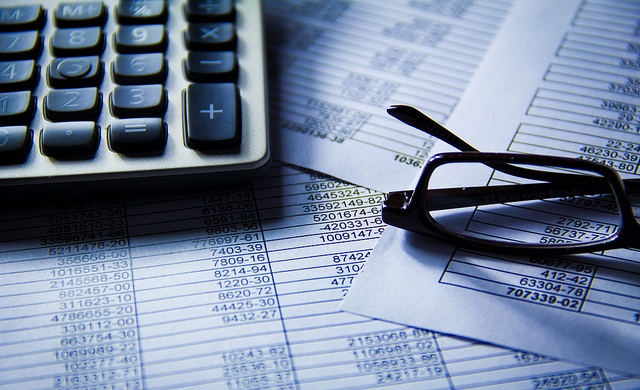“Life itself is a risky enterprise. Sometimes we fly high, enjoying great success. But then suddenly we fall into deep disappointments and the haunting reality of a failure, leaving our hearts wondering if there is anything worth looking forward to.” – Joe Stowell

There are super traders all around the world. If you don’t know them, I know some of them. They earn their livelihood by trading and they’re financially free. Now the question is: Who’s the best trader in the world? Indeed, the best trader exists. Now, I won’t mention names, but I’ll tell you how the best trader trades.
The best trader doesn’t argue with the markets – he always admits his mistakes. Most people tend to feel they’re right, even if facts prove them wrong. Extremely terrible speculators don’t accept their errors. It’s really a psychiatric condition that makes a person refuse to think he’s made a mistake, even if reality shows otherwise. Being overconfident in riding a position that’s determinedly negative is definitely not a good thing. Top traders always acknowledge their mistakes.
Likewise, the best trader may use any kind of positive expectancy system including fundamental strategies, and anticipate the market to move in a certain direction. If the price movement or fundamental figures happen to be against his expectation, he’ll smooth all his positions immediately. No arguments, no hope. Financial markets have no mercy upon anybody. If things go against you, then get out of the market without wasting time. Every good speculator I’ve studied is really good at cutting positions that seem to go determinedly against them. Yet, whenever the market proves them right, they run their gains for a considerable amount of time.
The greatest trader accepts the uncertainty that can affect any open orders; they even did this before they opened the orders. Uncertainty remains our ally, since speculation is a game in its own right. Negativity is also included in the game. The best trader doesn’t feel sad when a trade goes negative, nor does he feel too happy when a trade goes positive.
Using A System Profitably Is Conditional
Are you a successful trader? Did you like the results you produced as a trader in the previous year? If not, what errors did you make and how can you improve your results henceforth? You may need a trading system that takes care of some cogent factors contributing to profitable trading. Do you have these factors in mind? Please consider some of them:
1). Do I have a rule to follow in my speculative activities? A trading strategy should be approached with the level of seriousness and enthusiasm with which one would approach any high level endeavor or business. The entry, exit, position sizing and other rules of this strategy must be followed to the letter.
2) Do I have a worst-case emergency plan? A good system should have (a) rule(s) that can deal with any adverse movements that can affect an open trade, as well as a rule that makes you exit quickly if things are no longer going in your favor.
3). Do I have a positive expectancy system that can enable me to survive the current type of market? A good system ought to make money in good market conditions and make as little drawdowns as possible in bad markets conditions. It should have positive expectancy incorporated into it, which means that at least, two dollars should be expected for each dollar that is being risked. In other word, one should be profitable on a long-term basis even with only 30% accuracy.
4). Do I have a technique that will continue working even if the market conditions change without warning? Yes, a good trading system ought to survive all market conditions. A good trading system can work well in bull or bear markets. But you may stay out of extremely consolidating markets! You would just need to stick to its rules.
5). Do I even recognize the current type of market? It helps to be aware of the type of the market one is trading and the current prevailing condition of the market. This can help you make informed trading decisions.
6) Do I constantly condition my mindset in a way that makes me execute my trades flawlessly? You need to work on yourself. There are traders who use position sizing that is far bigger than the one recommended. Some enter additional trades based on analysis that is completely different from the rules of the system. Some do not even use stops at all – contrary to the system rule! A trader using a good system should learn how to control herself/himself and do the right things in the markets rather than doing things that would satisfy human emotions.
If you answered no to any of those questions, you have clues about why your results in the past have been undesirable. These, by the way, are only a few of the questions you could ask yourself. If you could take the factors above into consideration and work on them successfully, then you may find that trading can indeed be profitable.
Conclusion: When the markets go in our favor, we feel like a champion. We’ll assume that we are super trader and that we’re smarter than other traders. In most cases, only traders who’ve experienced the good and the ugly sides of the markets and survived them all are those who’re really qualified to be our mentors. You need to forget about your past and look forward to a brighter future. It’s important that you overlook your past failures and press forward.
This article is concluded with the quotes below:
“Stephen Covey says – ‘Live out of your imagination, not your history’. Look forward, not in your rear view mirror – or you’re sure to crash. It’s not what happens to you, it’s how you handle it that counts. Your mistakes are completely separate from who you are as a person. Take pride that you’re moving one step closer towards your goals. Don’t cripple your future growth by shooting yourself in the foot because you made a screw up.” – Louise Bedford [paraphrased]
“One of the main issues that new traders have is that they have expectations of huge rewards in a short period of time. “I’ll take my $5,000 trading account and turn it into a million dollars in a year, and tell my boss where he can go!” That rate of return is a bit unrealistic. By increasing your account size just a couple of percentage points a month, the power of compound interest will make you wealthy, but over a long period of time. Trading as a career is a marathon, not sprint. Those who try to make too much too fast often over-leverage their account and take on unnecessary risks by doing so. One or two large losses can wipe out a few weeks or months of good gains! If you do that you have “worked for free” as your account takes these major drawdowns. Does anyone want to work for free? I know I don’t.” – Rick Wright (Online Trading Academy)
Source: www.paxforex.com


 Hot Features
Hot Features













